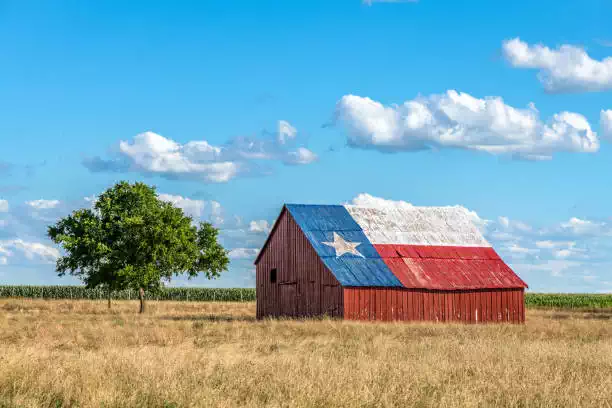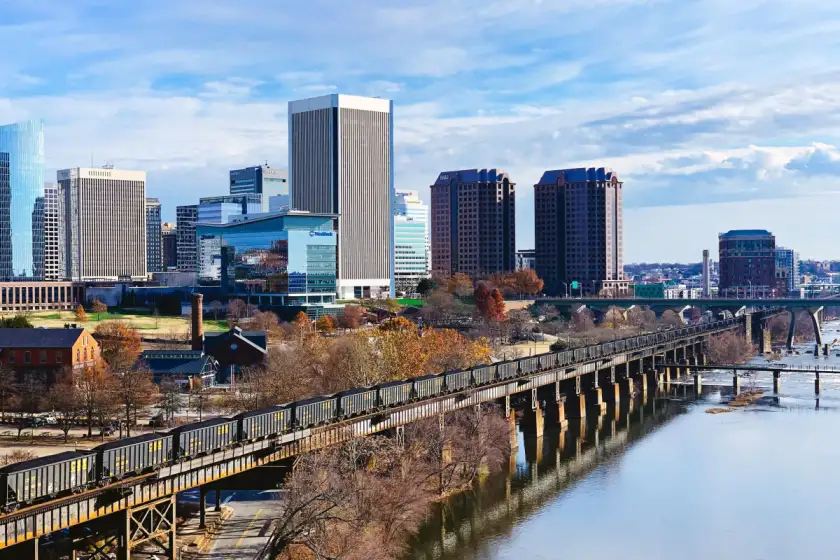Grants for Seniors in Hawaii
Last Updated on April 18, 2024 by Rachel
Help for Seniors in Hawaii – 22 Assistance Programs
Hawaii, with its vibrant culture, beautiful landscapes, and warm climate, is a place many call home into their golden years. However, as with anywhere, aging comes with its own set of challenges. Recognizing this, the Aloha State offers a several programs and grants designed to support its senior population, ensuring they have access to the resources they need to live with dignity, independence, and peace. From financial assistance to healthcare support, and from housing aid to social engagement opportunities, Hawaii is committed to serving its kupuna (elders) in every possible way. This article aims to shed light on the various programs and grants available for seniors in Hawaii, offering a guide to navigating these vital resources.
State Resources for Seniors
The State of Hawaii Executive Office of Aging (EOA) is the body in charge of seniors in Hawaii. EOA provides various support services to seniors through direct and indirect means. Some programs may be managed directly by the state, while grants may be issued to charities that focus on helping seniors in the state. The Executive Office of Aging also provides links to valuable resources that are of help to seniors. Elderly residents can visit https://health.hawaii.gov/eoa/ for some useful resource links, as well as the contact details of the EOA.
Financial Assistance
Med-Quest is a Medicaid program for kupuna that is sponsored by the State Department of Human Services in Hawaii. Seniors or disabled people who cannot afford their drug bills or their medical treatment can have cash assistance. Eligible candidates may benefit from adult health services, assisted living benefits, healthcare at home, and transportation assistance for their doctor appointments, personal care, emergency response system, and medical supplies in the long run.
Eligibility Requirements
- You must prove your financial hardship.
- You must show proof of your medical condition.
- You must be 65 years of age or older.
- Your monthly earnings must be less than $1, 1224.
- Your total asset must not exceed $2,000 worth for each. If you are applying with your spouse, this worth must not be more than $3, 000 in total.
To learn more, go to https://medquest.hawaii.gov/en/archive/providers/ProvidersMemos.html or by phone at 808 586 5679.
Housing and Rent Assistance
Adult Residential Care Homes in Hawaii (ARCH) are supported by the State of Hawaii. These homes are designed for senior residents seeking housing assistance. Eligible seniors can live in these houses based on their economic condition. Besides basic house necessities, some of these houses assist with medical help, sports activities, and therapy sessions for people. For more information https://health.hawaii.gov/ohca/files/2020/10/Adult-Day-Care-Centers-10-2020.pdf.
Continuing Care Retirement Community (CCRC) is also recognized as a Life Care Community or LifePlan Community for senior residents. This community provides housing assistance for people who want to live independently but also be part of a community that is surrounded by their peers. Apart from a huge common campus, these houses have all sorts of housing services including medical care.
The Accessory Dwelling Unit (ADU) assists an accommodation unit for who want to live independently. ADU is managed by the Hawaii Appleseed Center for Law and Economic Justice. These units have a living space with a kitchen, bathroom, and sleeping area in it. It is a good fit just for one person to live in. Hence, it is also known as granny flats among local people. These accommodation units are low-cost and senior-friendly. For further information, please visit http://hawaiiadu.org/whatisanadu/.
Home Repair Grants For Seniors are also available to keep older residents’ houses secure and well-maintained.
Healthcare Assistance
For free healthcare, seniors can get assistance from the Aloha Medical Mission. The organization is based in Honolulu and provides healthcare to eligible residents (including seniors) at no cost. Seniors can receive specialized care, including surgeries, as the Aloha Medical Mission team is made up of a team of doctors, general surgeons, anesthesiologists, plastic surgeons, etc. Intensive care is also available to meet needs as required. For more information, visit https://alohamedicalmission.org/what-we-do/131-2/.
Seniors in Hawaii can apply for Med-QUEST benefits. This is the state’s version of the Medicaid program that provide more integrated services and allows seniors to choose a health plan that suits their need. Med-QUEST benefits also help seniors over the age of 65 to seamlessly transition from Medicaid to Medicare, while remaining on the same coverage plan. QUEST integration plans also provide additional benefits for seniors at no cost. Apart from this, seniors can use the same health plan for Medicare and Medicaid, to get more benefits and lower the costs of medication. The services available under the program include, diagnostic tests, dialysis, durable medical equipment, hospice services, hospital visits/stays, emergency medical services, etc. The QUEST program is designed to provide Quality care, Universal access, Efficient utilization, Stabilizing costs, and to Transform the way healthcare is provided to recipients. Seniors can visit https://medquest.hawaii.gov/en/members-applicants/get-started.html to get started on their QUEST enrollment.
Skilled Nursing Facilities (SNF) are also known as nursing homes for kupuna. While some senior citizens can take care of themselves in their homes, some of them may not be able to look after themselves if they need medical care outside of the home. Seniors can apply to these facilities for health assistance 24 hours a day. You can see the nearest nursing facility near to you https://health.hawaii.gov/ohca/medicare-facilities/skilled-nursingintermediate-care-facilities/.
The Executive Office on Aging (EOA) is financed by the Hawaii Department of Health and the federal government to work for older citizens. Some of these programs are as follows
- Senior Medicare Patrol Hawaii (SMP Hawaii): This program specifically aims to fight against senior abuse and fraud considering health bills. Anyone can call this line 1 800 296 9422 to report misbehavior.
- Hawaii State Health Insurance Assistance Program: Kupuna can receive free information, training, and counseling with respect to health issues. To contact 1 888 875 9229 or 1 866 810 4379.
- Long-Term Care Ombudsman Program (LTCOP): It presents information and guidance about long-term care units for seniors. To reach out, please call 586 7268.
- Family Caregiver Support Program: This services assistant caregiver assistance at homes to improve the wellbeing of senior citizens.
To find out more programs and services, please visit https://health.hawaii.gov/eoa/ or make a call at 808 586 0100.
Dental Grants
The Aloha Medical Mission is a nonprofit volunteer clinic based in Honolulu. The clinic provides free dental services to seniors in the state who do not have dental insurance and need immediate dental care. Basic dental services like cleaning, tooth extraction, fillings and root canals are some of the services offered by the organization. The clinic has volunteer dentists who render assistance at no cost at all to patients. After urgent dental care has been provided and there is some form of stability, patients may be referred to a low-cost clinic that offers more services. Patients who wish to apply for assistance can print the registration form from https://alohamedicalmission.org/wp-content/uploads/Patient-Health-History-2022.pdf to fill it and bring in to Aloha Medical Mission, 200 N. Vineyard Blvd. Unit B-120, Honolulu, Hawaii. Along with the registration form, interested seniors are also expected to bring a valid photo ID and proof of low-income status. For more information on the services offered by Aloha Medical Mission, visit https://alohamedicalmission.org/what-we-do/dental-clinic/.
The Hospital and Community Dental Services (HCDS), a branch of the Department of Health’s Developmental Disabilities Division (DDD) also provides dental services for seniors who otherwise have no access to dental care. The HCDS has five dental clinics that seniors can visit to receive dental care. The care services provided include preventive services, restorative services, diagnostic services, prosthodontics (implants and dentures) services and oral surgery. Seniors can visit https://health.hawaii.gov/ddd/participants-families/dental-services/ for more information, and a directory of the addresses of the five clinics. Application details however can be found at https://health.hawaii.gov/ddd/files/2014/11/New-Applicant-Info-Revised-August-2016.pdf.
Seniors can also get dental care by applying for Donated Dental Services (DDS) assistance. DDS is a wide network of volunteer dentists who offer free healthcare to less privileged elderly residents of the state. Comprehensive dental treatment is provided for eligible seniors at little or no cost. Seniors who are able to pay some of the costs of care are encouraged to do so, although services would not be denied if they decline to pay. For more details on the DDS activities and care, visit https://dentallifeline.org/hawaii.
Seniors in Hawaii may be able to receive care from the Kalihi-Palama Health Center (KPHC). This is a low-cost clinic that provides various forms of dental care to eligible seniors. The services offered include comprehensive oral exams, cleanings, dentures, consultation, basic restorative care, oral surgery and root canal therapy. Further information on KPHC can be obtained from https://www.kphc.org/patient-care/dental/.
There is a steady decline in oral health. Oral health should not be ignored because it is a part of general health, even if the individual has a fixed income or is unable to pay. To find out more about the ways that seniors can get dental assistance, see Dental Grants in Hawaii.
Utility Bills Assistance
Hawaiian Electric Company is a local business that provides various discounts on low-income seniors’ bills based on their economic condition. People who want to benefit from this support should indicate that they are qualified for Low Income Home Energy Assistance (LIHEAP) in Hawaii. This company has three programs called Ohana Energy Gift Program, Special Medical Needs, and Life Support. To learn more about these programs, visit https://www.hawaiianelectric.com/billing-and-payment/payment-assistance/low-income-programs or contact 1 855 304 1212. Several programs are offered to assist elderly with their utility bills. See Help with Bills for further options.
Aloha United Way may also be able to provide assistance to seniors who need help with their utility bills. The assistance covers electric, water, sewer and gas utilities, and seniors can receive up to $750 in financial assistance, depending on the availability of funding for the program. Residents can visit https://www.auw.org/utilityhelp for more details.
Food Assistance
Hawaii Supplemental Nutrition Assistance Program (SNAP) offers healthy and nutritious meals for low-income seniors. It is subsidized by the federal government via the U.S. Department of Agriculture (USDA). Low or moderate-income people can apply for this program. To learn more, go to https://humanservices.hawaii.gov/bessd/snap/ or dial 808 586 5560. In addition to Hawaii SNAP, other Food Programs for Seniors are established across the nation to meet the dietary needs of low-income senior citizens.
Eligible low-income seniors in Hawaii can get help with food through the Supplemental Nutrition Assistance Program (SNAP). This is a federal program that provides food and nutritional support for challenged residents. Seniors who meet the income guidelines receive monthly benefits that can be used to purchase food. The benefits are provided on a special debit card known as the Electronic Benefits Transfer (EBT) card. This card can then be used to purchase food items at grocery stores around the state. Seniors can find more information on SNAP in Hawaii at https://humanservices.hawaii.gov/bessd/snap/. For convenience, and online application can be filled at https://pais.dhs.hawaii.gov/PAIS/#!/.
The Commodity Supplemental Food Program (CSFP) is another federal program that can help seniors get access to food. The program is open to residents who are 60 years and older, and aims to supplement their diet by providing nutritious food items. These items are provided in the form of monthly food packages. The food packages are shelf-stable and include things like milk, grains, cereal, fruit, vegetables, etc. Details of the CSFP in Hawaii can be found at https://labor.hawaii.gov/ocs/service-programs-index/federal-food-assistance-programs/csfp/.
Seniors have the opportunity to purchase fresh food items with help from the Senior Farmers’ Market Nutrition Program (SFMNP). This program gives seniors $50 worth of coupons to purchase locally grown fruits, vegetables, herbs and honey from farmers’ markets. Nutrition education is also provided to help seniors make good decisions and imbibe proper habits. Coupons are provided to seniors over the age of 60 who meet the income and residency requirements. Further information can be obtained from https://labor.hawaii.gov/ocs/service-programs-index/federal-food-assistance-programs/sfmnp/.
Seniors can also obtain food items for urgent needs through the Emergency Food Assistance Program (TEFAP). TEFAP provides grants and/or food item to help seniors meet nutritional demand and stay healthy. Seniors can visit https://labor.hawaii.gov/ocs/service-programs-index/federal-food-assistance-programs/tefap/ to apply.
Transportation Assistance
Transportation services for the elderly residents of Hawaii are made possible through a variety of means. The Nā Hoaloha charity has a program known as Escort Transportation. This program pairs seniors with volunteers who can take them to visit the doctor, buy groceries, visit the pharmacy, etc. Seniors can visit https://www.nahoaloha.org/programs-services/ for information on other available services.
Seniors can also get transportation assistance through the Med-QUEST program. This covers non-emergency medical transportation to enable them meet up with doctors’ visits. Non-medical transportation assistance may also be offered for seniors whose health conditions warrant such assistance. More information of the transportation options offered by Med-QUEST can be found at https://prc.hmsa.com/s/article/QUEST-Integration-Transportation-Ground-Non-Emergent.
The Catholic Charities Hawaii has transportation assistance options for seniors as well. Non-emergency medical transportation is available to help elderly residents meet up with doctors’ appointments and treatment schedules. Transportation is also available for seniors who need to purchase groceries, visit friend and go to senior centers. The vehicles provided by Catholic Charities Hawaii have mobility modifications to allow access for disabled seniors. Further information on the transportation provided by Catholic Charities Hawaii is available at https://www.catholiccharitieshawaii.org/senior-services/.
Seniors can apply to the County of Hawaii Mass Transit Agency for transportation assistance. The agency partners with Hawaii County Economic Opportunity Council and Brantley Center to provide free transport services for seniors aged 60 and older. Services are available from Monday to Friday between the hours of 6am and 4:30pm. Seniors who are interested in the free transportation can visit https://www.heleonbus.hawaiicounty.gov/programs/hele-on-kako-o-paratransit-services for registration details.
Charities and Organizations
Catholic Charities Hawaii is very influential and presents various programs designed for senior citizens. The mission of this charity organization in Hawaii is to improve the health and well-being of the elderly. Some of these programs are as follows
- Case Management: Seniors who are suffering from psychological or social issues can receive professional counseling sessions.
- Lanakila Multi-Purpose Senior Center: People who are 60 years of age or above can participate in educational classes or volunteer for different social events. By phone at 808 847 1322.
- In-Home and Community-Based Supportive Services: Seniors ages 60 or older can have friendly home visits and protection services in case of need.
- Housing Assistance for Seniors: This is one of the most influential programs for residents who are 60 years or older. Low-income applicants can get housing counseling or live in low-cost shared housing. The mission of this program is to ensure that seniors having financial hardship live in a safe and decent housing environment.
- Transportation Services: Local people who are 60 years old or older are eligible for this program. Those who cannot drive or cannot afford it may use this benefit. Regardless of their reason, accepted candidates can use this service.
- Hawaii Circle of Care for Dementia is an Alzheimer’s Disease Program Initiative that is supported by the U.S. Department of Health and Human Services. It provides caregivers and training on this disease for family members and also assists in medical treatment and support.
- Phone-A-Friend is a special project for seniors living alone in their homes. Some people may not be in a healthy physical condition to go out and socialize. Therefore, local volunteers participate in this program and get in touch with senior residents. The mission of this program is to reduce isolation, loneliness, and to ensure that senior residents are doing fine.
To learn more and apply, please visit https://www.catholiccharitieshawaii.org/senior-services/. Various religious organizations also plan programs and provide services to help the elderly. Likewise, see Churches that Help Seniors.
Nā Hoaloha is another charity organization in Hawaii that provides compassionate care for the elderly residents of the state. The organization connects seniors with volunteers who provide care for them. Volunteers visit, call and help transport seniors, as needed. During visits, the volunteers may help with some housekeeping tasks, and preparing meals with available food items. Additional details on the services of Nā Hoaloha can be found at https://www.nahoaloha.org/programs-services/.
Grants for Senior Veterans
The Supportive Services for Veteran Families (SSVF) is an initiative set up to assist financially challenged veterans in the state. SSVF provides assistance to veterans and their families, helping to pay for things like rent, utilities, and transportation. The initiative also helps homeless veterans find and secure affordable housing, paying off things like initial deposit and security deposits for the home. The SSVF in Hawaii is operated by Catholic Charities Hawaii and more details on available services can be found at https://www.catholiccharitieshawaii.org/housing-assistance-for-seniors/.
Veterans may be eligible for tax exemptions and other benefits, depending on duration of service. Some of the assistance provided includes medical care, group living facilities and financial benefits. Veterans in Hawaii can visit https://myarmybenefits.us.army.mil/Benefit-Library/State/Territory-Benefits/Hawaii and https://www.va.gov/directory/guide/state.asp?STATE=HI&dnum=ALL for available services and locations to visit for help.
Frequently Asked Questions (FAQs)
1. What financial aid is available for seniors in Hawaii? Seniors in Hawaii can access financial assistance through programs like the Kupuna Care Program for caregiving support, the Supplemental Nutrition Assistance Program (SNAP) for food purchases, and the Low-Income Home Energy Assistance Program (LIHEAP) for help with utility bills.
2. How do seniors apply for Medicaid in Hawaii? Medicaid applications in Hawaii can be completed online through the MyBenefits Hawaii portal or by contacting the Med-QUEST Division. Necessary documents include proof of age, residency, income, and assets.
3. What housing assistance is available for seniors in Hawaii? The Hawaii Public Housing Authority (HPHA) offers affordable housing options for seniors, including public housing and the Housing Choice Voucher Program (Section 8). The HPHA also has information on senior-specific housing developments.
4. Can seniors receive assistance with utility bills in Hawaii? The Hawaii Low-Income Home Energy Assistance Program (LIHEAP) provides financial assistance to seniors struggling to pay their utility bills, including both heating and cooling expenses.
5. How do seniors in Hawaii get help with prescription drugs? The Hawaii State Health Insurance Assistance Program (SHIP) offers counseling to help seniors understand their Medicare Part D prescription drug coverage options and identify programs that can help reduce their medication costs.







